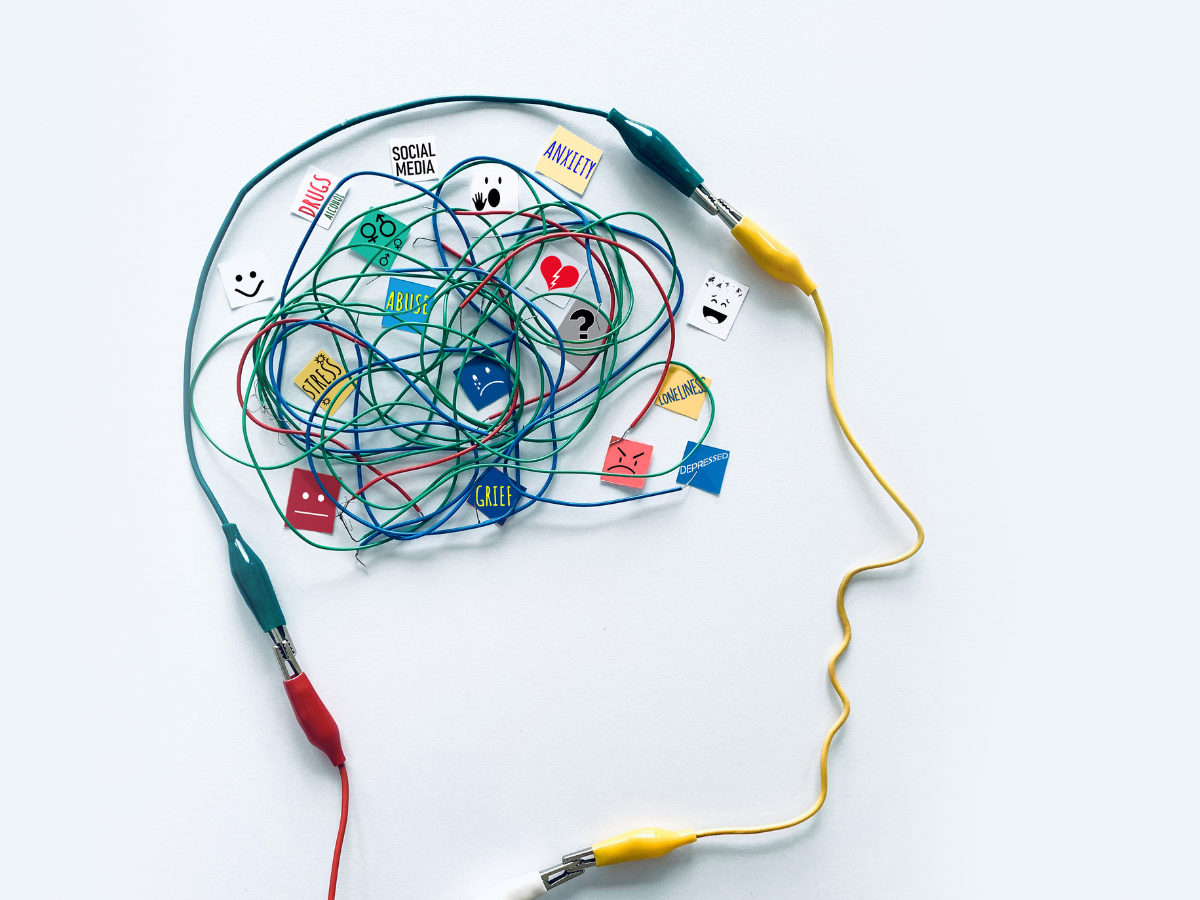Mental health plays a major role in how people manage their weight. For Filipinos, emotional well-being often determines how consistently they eat well, stay active, and maintain long-term progress. The connection between mental health and weight loss is both psychological and biological, shaped by hormones, habits, and environment. Understanding this link can help Filipinos build healthier, more sustainable approaches to weight management.
How Does Mental Health Influence Weight Loss?
Mental health influences nearly every part of the weight-loss process. When people feel anxious, stressed, or depressed, their body releases stress hormones such as cortisol, which affects appetite and energy levels. High cortisol can make the body crave sugar or high-fat foods, leading to overeating and eventual weight gain.
The Mayo Clinic explains that chronic stress can interfere with metabolism and digestion, increasing the tendency to store fat. For Filipinos facing work-related pressure, traffic, or financial challenges, these stressors can become long-term obstacles to healthy weight management. Emotional eating, late-night snacking, and irregular sleep are common coping mechanisms that further complicate weight control.
In addition to stress, low mood or anxiety can disrupt appetite. Some people eat more when feeling down, while others lose interest in food altogether. This inconsistency can confuse hunger signals, making it harder to maintain balanced nutrition.
In summary, mental health can affect:
-
Appetite and food choices
-
Hormone balance (especially cortisol and serotonin)
-
Motivation and energy levels
-
Sleep patterns and recovery
Why Does Stress Make It Hard to Lose Weight?
Stress triggers a cascade of physical changes that directly affect metabolism. According to the National Institutes of Health, when the body senses stress, it activates the fight or flight response, releasing hormones like cortisol and adrenaline. These hormones were once essential for survival but now contribute to overeating and fat retention in modern lifestyles.
Prolonged stress increases blood sugar and insulin levels, encouraging fat storage, particularly around the abdomen. Elevated cortisol also slows muscle recovery and disrupts sleep, both of which reduce calorie burning and overall energy balance. The Cleveland Clinic highlights that stress can even make healthy foods less appealing, pushing individuals toward quick comfort foods that provide emotional relief but little nutritional value.
In the Philippines, stress eating has become a familiar pattern. Milk tea, fried snacks, and instant meals are easy to access and affordable but are often calorie-dense and nutrient-poor. Over time, these habits reinforce a cycle where stress leads to overeating, followed by guilt, and then more stress.
How Do Depression and Anxiety Affect Appetite and Weight?
Depression and anxiety are two of the most common mental health challenges linked to changes in weight. Both conditions affect neurotransmitters like serotonin and dopamine, which regulate mood, motivation, and appetite.
People experiencing depression often report fatigue and loss of interest in daily activities, including cooking or exercising. This can lead to reliance on processed foods or skipping meals altogether. Others may eat more in search of comfort, a behavior sometimes called emotional hunger. The Harvard Health Publishing notes that depression can slow metabolism and alter food choices, making weight gain more likely over time.
Anxiety, on the other hand, can trigger either loss of appetite or increased snacking. The National Library of Medicine reports that anxious individuals often experience digestive issues such as bloating or nausea, which can interfere with regular eating patterns. This inconsistency complicates weight management since the body struggles to maintain balance when eating habits fluctuate daily.
Possible effects of depression and anxiety on weight include:
-
Changes in appetite and cravings
-
Lower motivation for physical activity
-
Disrupted digestion and sleep cycles
-
Difficulty maintaining consistent nutrition
Can Sleep and Motivation Affect Weight Management?
Sleep and motivation are crucial to successful weight loss. According to research from the Cleveland Clinic, sleep deprivation increases ghrelin, the hormone that signals hunger, while decreasing leptin, which promotes fullness. This hormonal imbalance makes people feel hungrier and less satisfied after eating.
Poor sleep also affects mental clarity and emotional regulation. When tired, people are more likely to crave carbohydrates and sugar for quick energy. In addition, fatigue can reduce motivation for physical activity. For many Filipinos balancing work, family, and community obligations, sleep often takes a backseat, making consistent exercise and meal planning more difficult.
Setting small, realistic goals such as walking for 30 minutes daily or preparing one healthy meal each day can help restore motivation. Tracking progress or sharing goals with supportive friends can also increase accountability.
What Are the Biological Connections Between Mood and Metabolism?
The link between mood and metabolism is well-documented in scientific literature. Hormones like cortisol, insulin, and serotonin not only influence emotional states but also regulate energy expenditure and fat storage.
A review published in Nutrients found that stress and negative emotions can alter the body's response to insulin, reducing the ability to process glucose efficiently. Over time, this contributes to weight gain and metabolic imbalance. Similarly, serotonin, often referred to as the feel-good neurotransmitter, plays a dual role in mood regulation and appetite control. Low serotonin levels are associated with both depression and cravings for carbohydrates.
These biological connections highlight why addressing mental health is not separate from managing weight. Treating both together creates a more stable and sustainable outcome.
How Can Filipinos Manage Stress to Support Healthy Weight?
Managing stress effectively can help support both mental and physical well-being. While every person's situation is unique, certain strategies are consistently shown to help regulate mood and appetite.
Regular physical activity, even light forms like walking or dancing, reduces cortisol levels and releases endorphins that improve mood. The World Health Organization recommends at least 150 minutes of moderate exercise each week to promote both mental and physical health.
Mindfulness and relaxation techniques such as deep breathing or meditation can also help lower stress and prevent impulsive eating. In addition, a balanced diet rich in fiber, lean protein, and complex carbohydrates can stabilize blood sugar and support emotional stability.
Practical ways to reduce stress include:
-
Scheduling regular breaks from work or digital devices
-
Engaging in outdoor activities or hobbies
-
Maintaining social connections with supportive peers
-
Seeking help from licensed professionals when needed
When possible, connecting with supportive friends, family, or community groups can strengthen resilience. Studies show that social support helps people stick to lifestyle changes and reduces the impact of stress-related eating.
What Role Do Cultural Habits Play in the Philippines?
Cultural factors also shape how Filipinos experience both mental health and weight management. Food often represents comfort, celebration, and connection. Traditional dishes like adobo, lechon, and pancit are integral to family gatherings and social bonding. However, portion sizes and frequency of indulgent meals can influence long-term weight outcomes.
Work culture in the Philippines also contributes to late meals and irregular schedules. Many Filipinos eat dinner late at night due to long commutes or extended work hours, which may interfere with digestion and sleep quality. Over time, these habits can make weight loss more difficult despite good intentions.
Recognizing these patterns is the first step toward improvement. Adjusting portion sizes, increasing vegetable intake, and setting consistent mealtimes can make meaningful progress without removing the joy of food.
When Should You Consult a Professional?
If emotional challenges, stress, or sleep issues start to interfere with eating or weight, consulting a healthcare professional is recommended. Licensed psychiatrists, psychologists, and nutritionists can help identify underlying causes and create a safe, individualized plan.
Certain medical conditions such as thyroid disorders or hormonal imbalances may also contribute to weight fluctuations. According to the Department of Health Philippines, proper diagnosis and early intervention are key to preventing complications. Combining mental health support with nutrition guidance ensures a more complete approach to well-being.
The Takeaway
Mental health has a profound impact on weight loss for Filipinos. Stress, depression, anxiety, and poor sleep all influence eating habits and metabolism in different ways. Sustainable progress comes from addressing both emotional and physical aspects of health through balanced habits, mindful eating, and adequate rest.
Building awareness of this connection helps create a more compassionate and realistic view of weight loss. By recognizing that motivation and willpower are closely tied to mental wellness, Filipinos can take steps toward lasting change that benefits both mind and body.
To explore evidence-based approaches to improving overall wellness, visit lose weight or learn more about holistic health and self-care at andyou.ph.

















